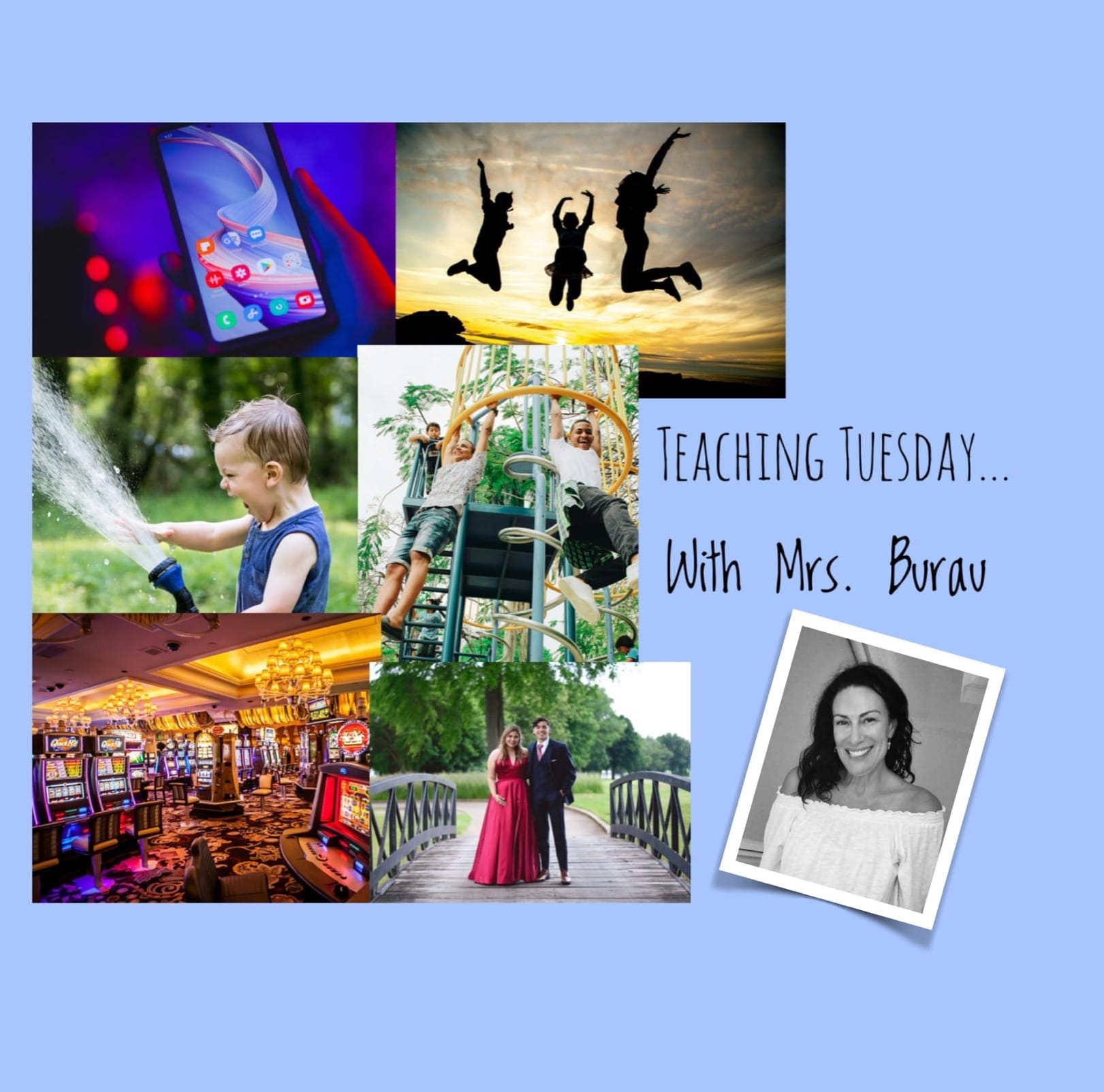I know very few people who have a three month vacation, unless they are retired. Your kids don’t get 3 months off either. Their education should prepare them for the real world and most likely they will not encounter a job with three months off. That being said, “summer semester” can and should be a break from the academic calendar year with opportunities to work on skills unable to be focused on during September-May and a little review of what they learned over the school year. Think of “Summer Semester” as a little laid back, but still learning takes place. Here are some thoughts on summer learning.
1. Continue with a routine. Kids need a routine. YOU NEED THEM TO HAVE A ROUTINE. A regular wake time (which is good for their body anyway), with some chores, some reading, math review and some writing is good to include most days. Allowing for some creativity, physical fitness, social interaction and some down time are all part of a balanced day. Last week, I had two days where I did not have a routine and I found myself putting off things that needed to be done, I was down right lazy those days and had a hard time getting going. It made me think of how one lazy day could lead to another and so on and so on. Of course, we all need down time, we DO NOT need to go like the Energizer Bunny every day, whatsoever. However, too much unstructured time can lead to lots of lazy. On the third day, I was more productive because I got back on my routines. Weekdays in the summer may differ, leave the weekends for lots of down time to allow your child to regroup and refresh. In terms of the academics mentioned above, short productive time period is all that is necessary, to keep a child’s skills where they should be, so they don’t have to relearn information they have already learned once school resumes in the fall. For example if you have a third to fifth grade student, taking 15-20 minutes each day during the week to go over math facts (addition, subtraction, multiplication and division) will reinforce these “NEED TO KNOW SKILLS.” Some reading before going to bed or writing in a journal in the morning, just keeps the mind engaged and the more a child or anyone writes, the better they become at it and more comfortable. Whether it is a journal or letter to a grandparent, it doesn’t matter, what does matter is the consistency and doing it. To expect a child to keep their room cleaned and help out with some household chores is not unrealistic, just be consistent. Make this part of the routine, such as “You make your bed when you get up. All laundry goes in the laundry hamper. All laundry is brought down to the laundry room on Monday, Wednesdays & Fridays, etc.” Whether it is a chart, sticky notes with chores of the week, each family, each parent, knows what works for them.
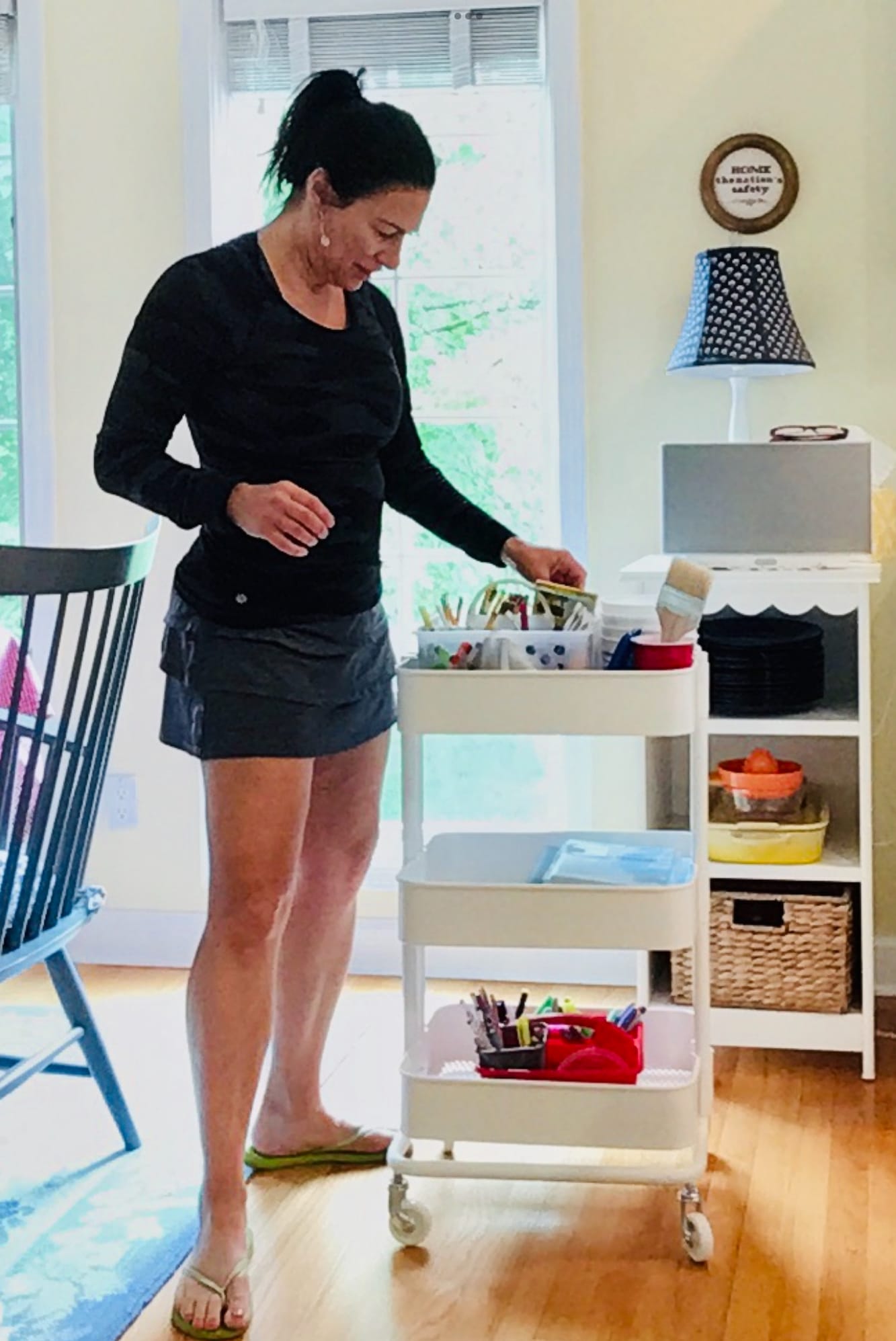
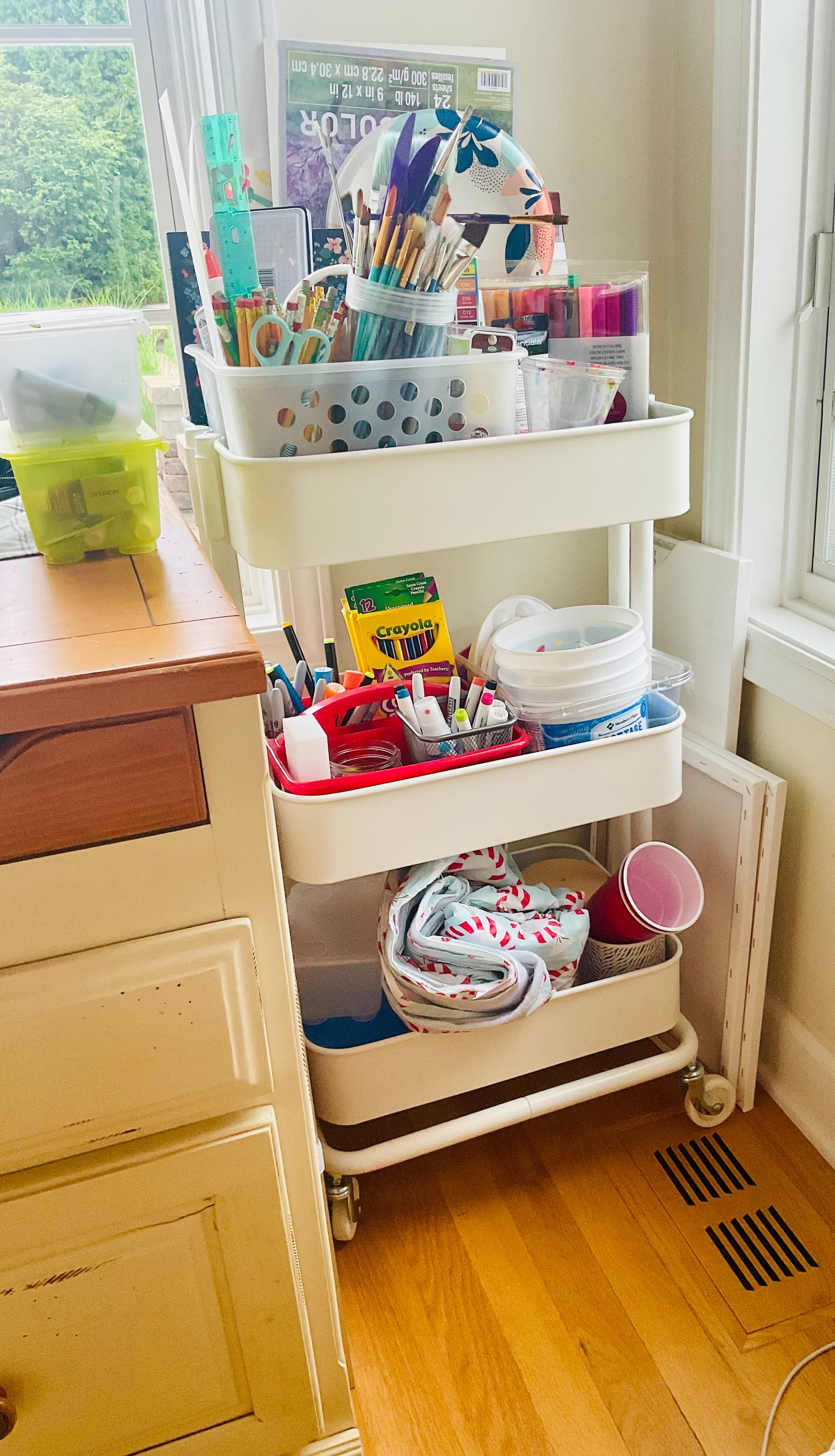
The little art cart I purchased from IKEA a few years ago…and now how it is stocked and ready to be used. I use this almost daily.
2. Setting up your summer classroom can be fun and everyone will have their own idea of what works for their kids. Each child should have an area where they can read quietly either in their room, a special little chair or nook in your home where they can be comfortable and have an opportunity to really get into a book. Where will they write a letter or write in their journal? Maybe a desk in their room, a table on the patio or at the kitchen counter. Think about an area to be creative. You could set up a folding card table, that you may have stored away in the basement (or maybe grandma has one) that can stay up with a plastic table cloth, chairs and organized art supplies. I have a cart of art supplies for my own use and teaching kids classes/grandchildren. I bought it from IKEA and I have seen a similar version at Target. Make sure there is a protocol with rules and expectations of set up/clean up/etc. Have your kids help set up a few shelves in a cabinet with pencils, sharpener, paper, spiral notebooks, rulers, markers, highlighters, etc. Remember when kids are part of the set up, they have ownership of a project. Consider their suggestions when it comes to this set up, they will be the ones using it. Explain that it needs to be kept organized and clean and every so often it needs to be tidied up and restocked. They can start a list that could be on the fridg where supplies can be listed for mom or dad to refresh.
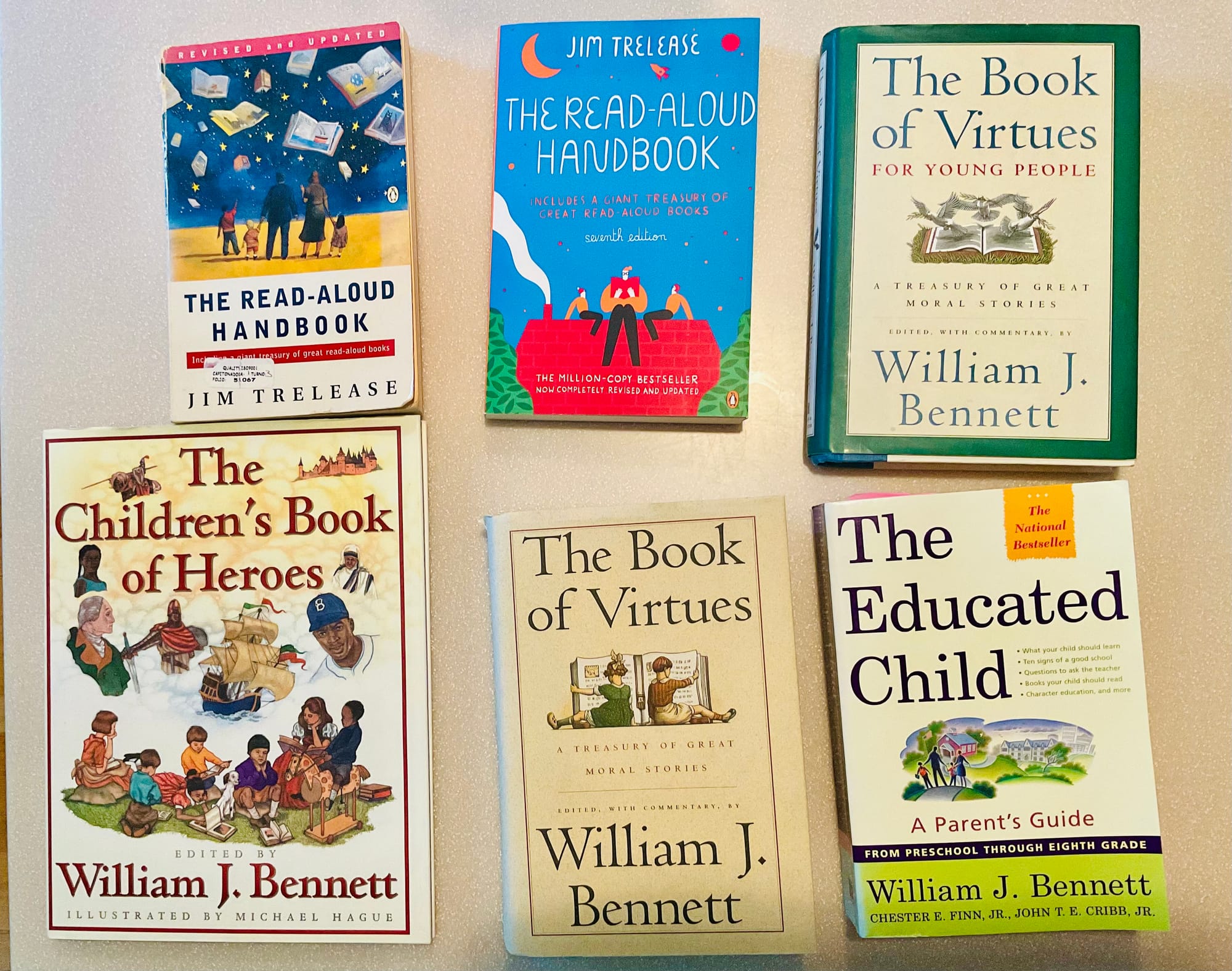

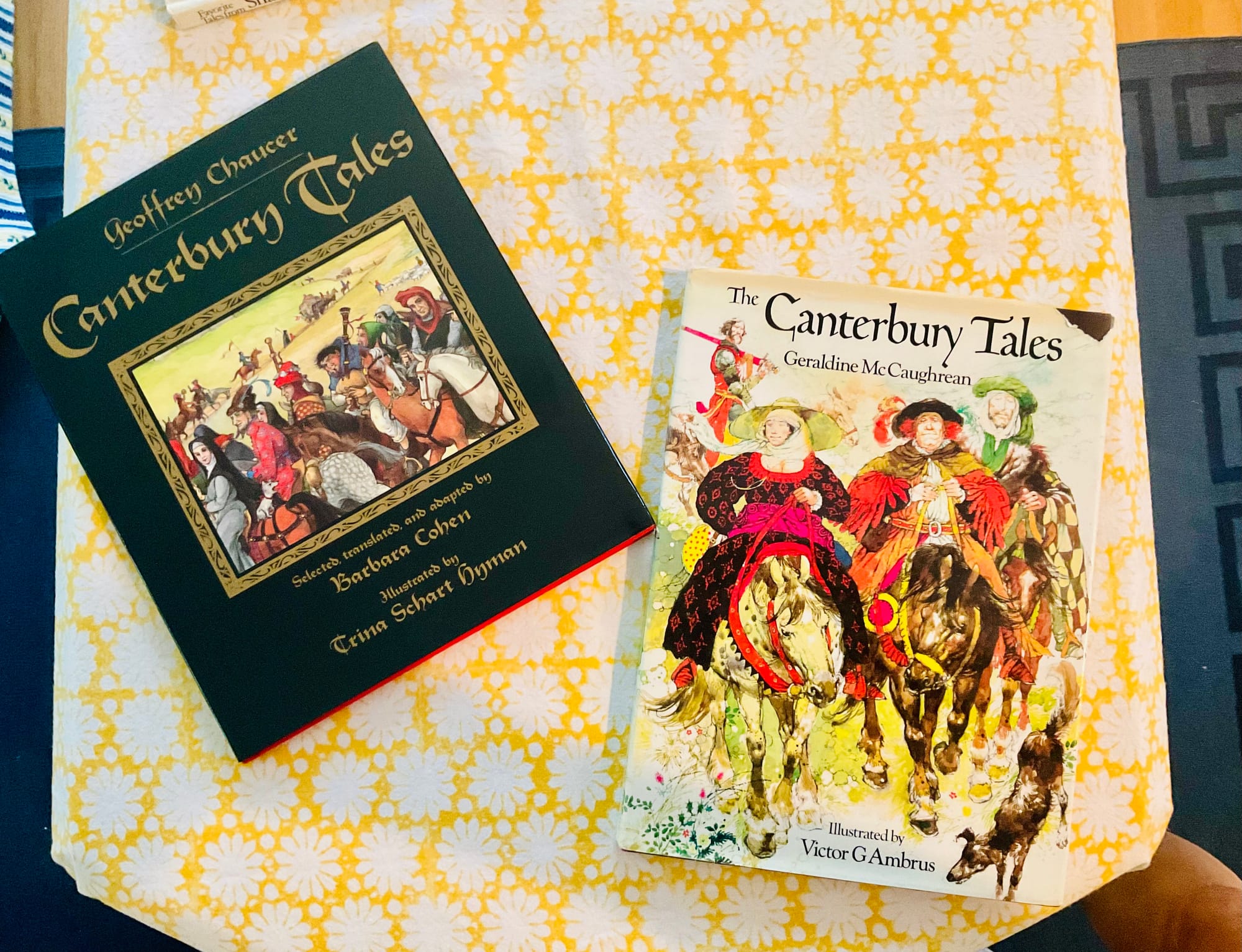
A few of the resource books I am a big fan of. Canterbury Tales, Shakespeare for Children? ABSOLUTELY! The stories are fantastic and teach great lessons. You just tell them in plain language, rather than Old English and you will have a captive audience of all ages. You might even learn something too! Win/win!
3. Books and resources that can be of assistance. Make a list of books you may want to pick up or order for your summer classroom. Often when I am looking for these resource books, I consider USED books on Amazon. Ordering USED books can take a little longer than the regular Amazon order as they are sourced from private sellers who may take longer getting the book in the mail, so do this now to give you ample time to get them and prepare your lessons. There are many thorough sources that include good reading, which makes finding these pieces, for example, rather than having to find good classic stories, you can find anthologies that have several. When my kids were in elementary school/middle school, we often read stories Shakespeare and the Canterbury Tales. Now a child that age is NOT going to understand easily old English, but an anthology of SHAKESPEARE for Children or Canterbury Tales, like Bernard Miles books (pictured here) tells the classic stories in very understandable story form. I would read these stories at bedtime or during snack time in the afternoon. Dr. Bill Bennett has several books of compiled classic stories. These people have done the hard work, utilize their books, which can easily set up a week/month long SERIES, on a particular subject, such as “lets concentrate on the stories of Shakespeare in the month of June” or let’s spend the summer focusing on ‘Classic Children Literature’. You could complete each unit or topic with a party, a field trip that ties up the subject. This could be lots of fun and let your kids help in the planning. You could/they could get real creative with this. Their journal writings could be focused on the reading as well. These units can inspire further reading and looking for books in the library that stem from these readings. One thing can lead to another and leads to less boredom and asking you “what can I do? I’m bored.” I like to leave these books out on coffee tables, end tables or in a very visible baskets so kids will pick them up to read a chapter or few pages. I still like to do that myself, if I just have a few minutes to read.
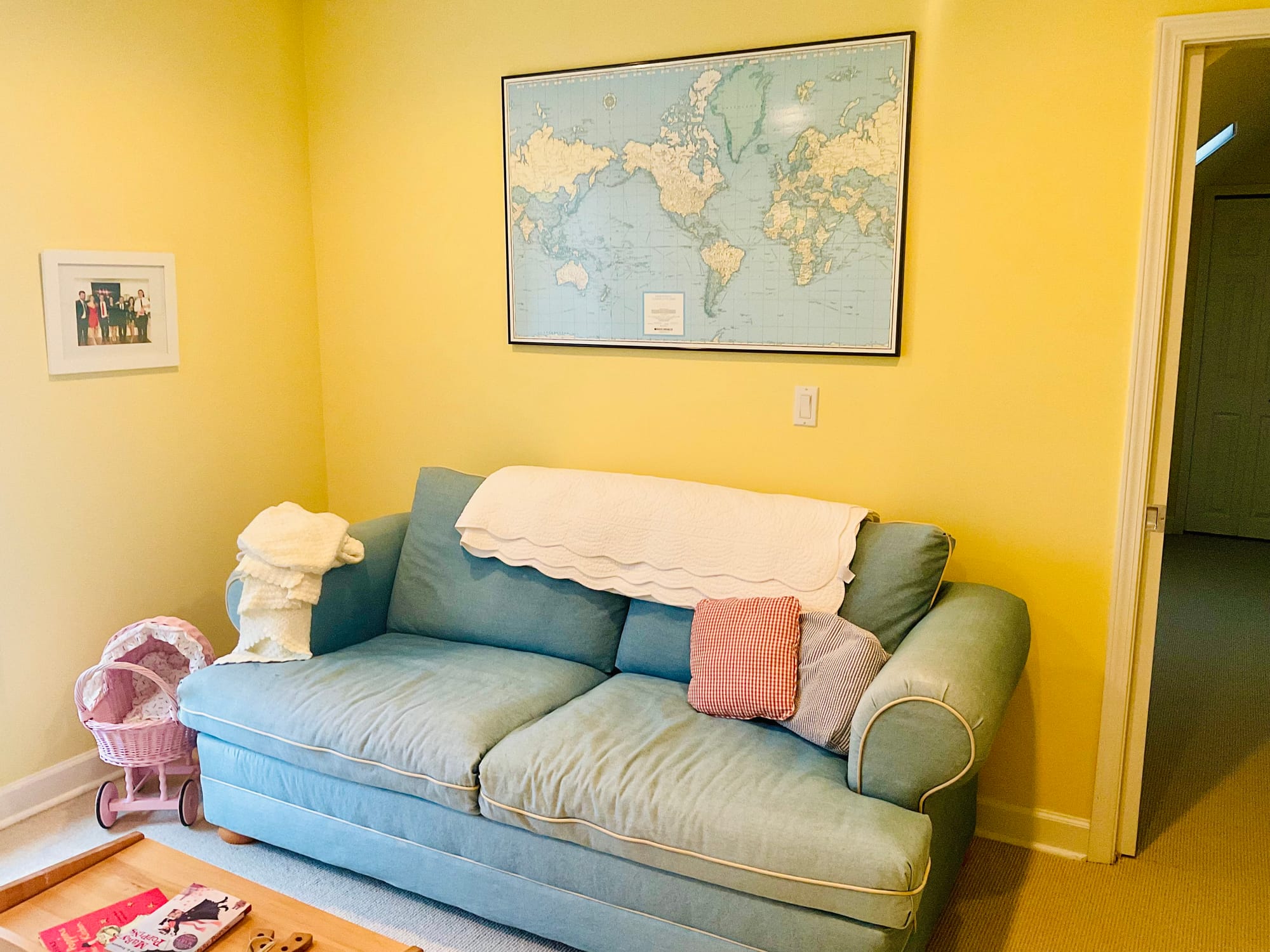
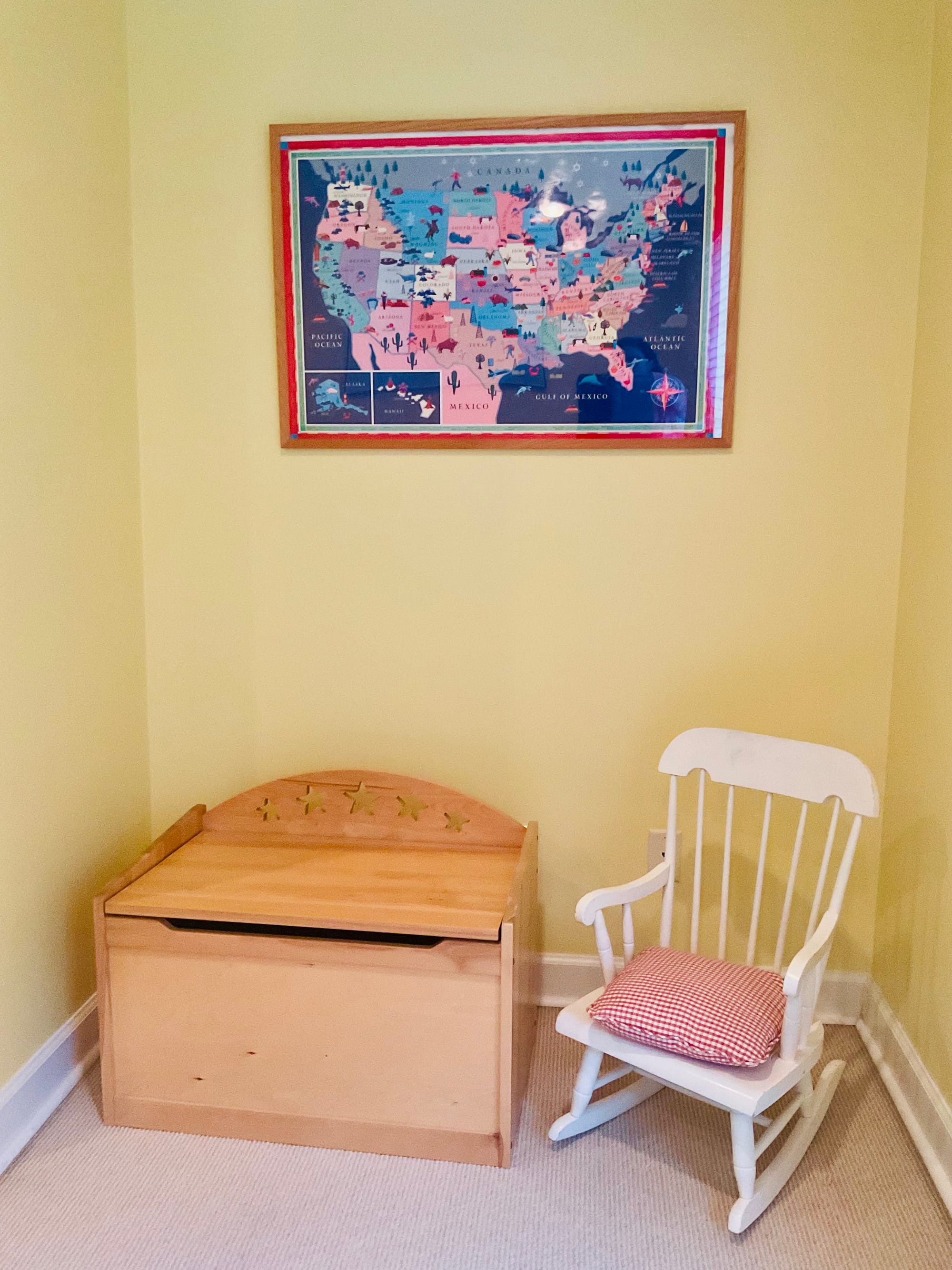
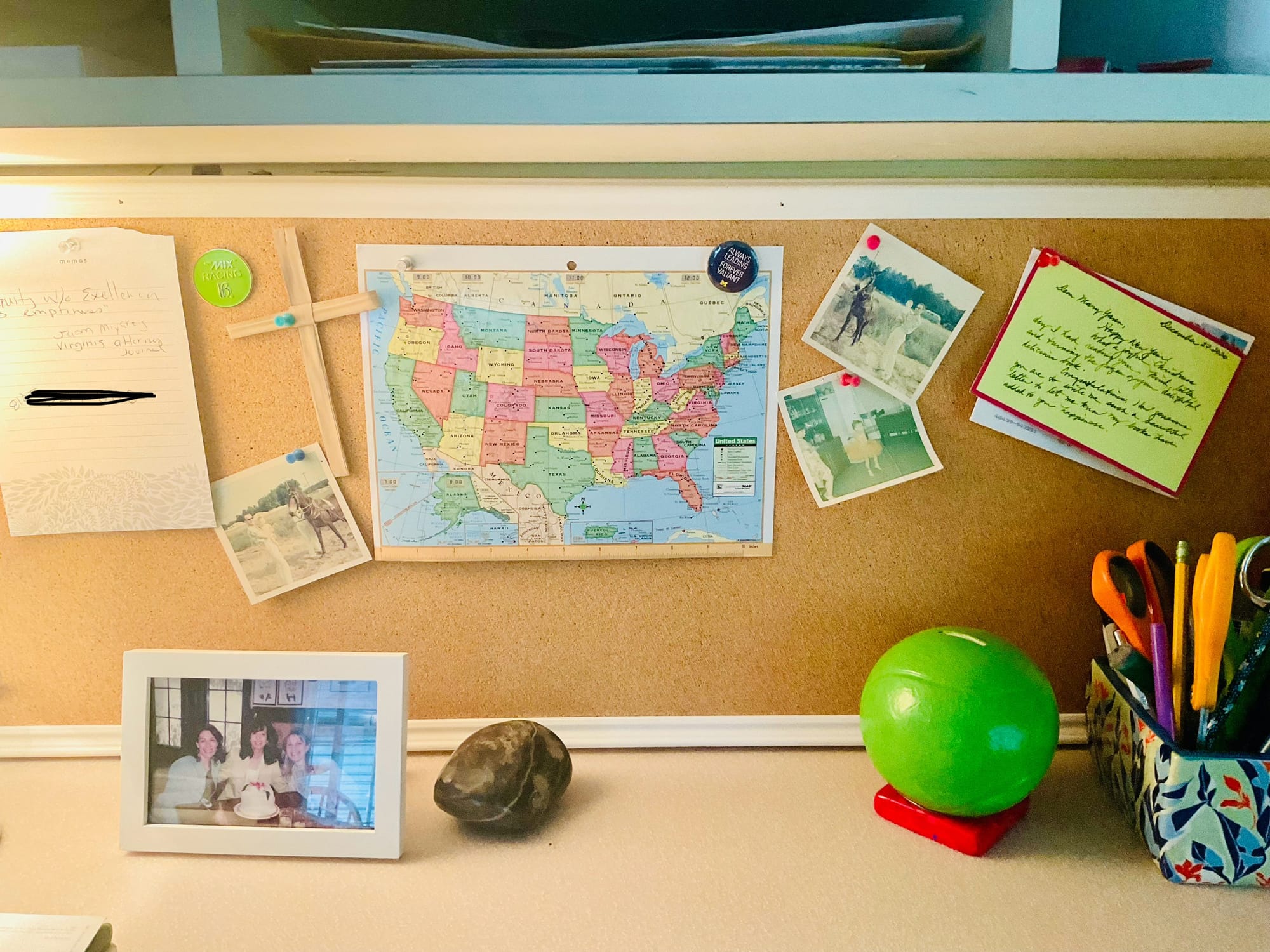
Our playroom for grandchildren with maps of the US and the world-that were once in our children's’ rooms as they were growning up so that a location is easily accessible. I still have a US map on my desk.
4. MAPS, MAPS, MAPS! Have some maps on hand. I like wall maps so that it is easy to reference a location that may appear in a story you are reading or a story in the news. Both a world map and a United States map are, in our house, necessities. If that is not a possibility, a globe on display or place mats so that your kids, as they eat, see the country they live in and how it fits into the world. You can order these on amazon or I have picked up really nice maps at STAPLES or your local office supply store. I would place our kids vitamins in the morning on a different state as they were learning states and capitals. We then graduated to the world map and it was a different country each day. I still have a US map on my desk for easy reference for towns cities. Before you know it, your kids have a good sense of geography and the world they live in. It is easy.
Here’s a start for you and the next few weeks, I’ll be writing on THE SUMMER CLASSROOM. I always felt that there was only so much time with our kids and I wanted to make the most with the time I had with them so that I could teach them all the things they needed to know before they left the house. I didn’t want to waste anytime and I tried as much as possible to make time productive. You have plenty of “Homework” here. Get going and I’ll be back with more next week…Wishing you a great day 🍎




